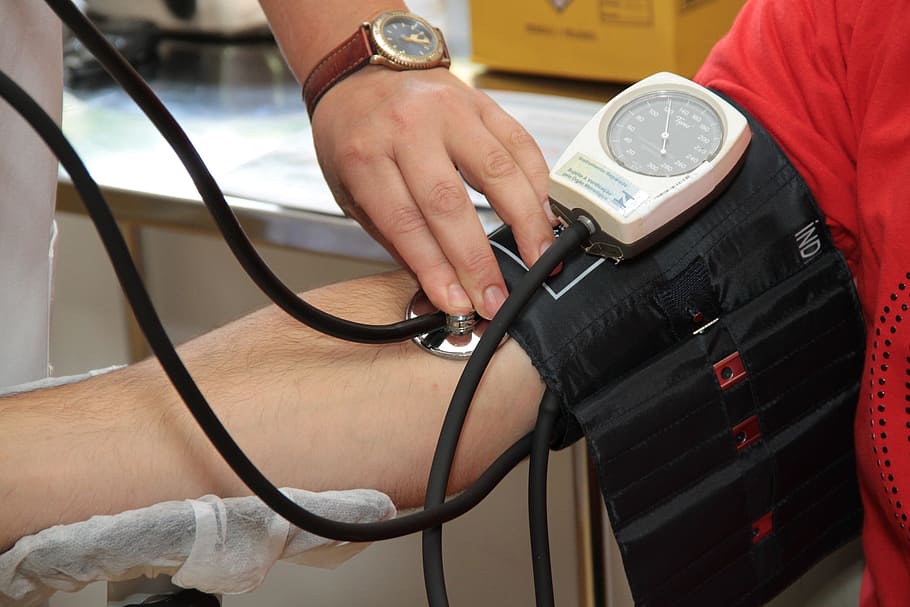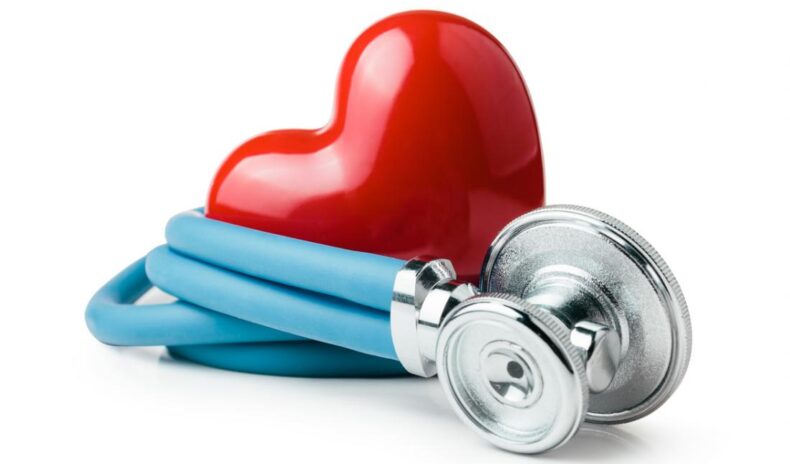Nowadays, Hypertension (bp) is a major health concern that comes with very few symptoms.
High blood pressure or hypertension is called a “silent killer” since it causes no symptoms but tends to increase the risk of heart disease and stroke. This can also harm other organs of the body including the brain, kidneys, and eyes. High blood pressure develops gradually for a variety of causes, including an unhealthy and inactive lifestyle, health issues such as diabetes and obesity, and even during pregnancy.
Blood pressure
Blood pressure is the pressure that’s in our blood vessels that are created by the action of the pumping of the heart.”
What is a Normal blood pressure ?
Normal blood pressure levels should be less than 120/80 mmHg.The aging is never late to start working on your health and bring your blood pressure to contribute
The aging process brings many changes to the body, leading to the narrowing of the arteries that contributes to higher blood pressure. Also, as we age, our arteries tend to get smaller leading to progressive rises in blood pressure.
Early detection is important. Regular checkups and readings can help you and your doctor notices any changes in your blood pressure. ![]()

Does your lifestyle affect high blood pressure?
Our body’s ability to develop high blood pressure depends dramatically on our lifestyle.
Studies reveal that the food we eat and the amount of exercise we do contribute to the condition. Sodium is a key contributor to high blood pressure and 80 percent comes from fast food and processed foods. And if we don’t exercise our body and stay fit, or if we’re lethargic, we’re going to cause premature aging or narrowing of our blood vessels.
What are the signs and symptoms of high blood pressure?
Well unfortunately, the only way we know if someone has high blood pressure is by diagnosing and measuring it. So if you are noticing some changes in your body then you should get your bp checked once.
Everything You Need to Know About High Blood Pressure (Hypertension)

High blood pressure, or hypertension, occurs when the force of blood pushing through your vessels is consistently too high. In this article, we’ll cover the basics of hypertension, including its symptoms, causes, how it’s treated, and more.
Narrow blood vessels, also known as arteries, create more resistance to blood flow. The narrower your arteries are, the more resistance there is, and the higher your blood pressure will be. Over the long term, the increased pressure can cause health issues, including heart disease.
Treatment for hypertension
Treatment of hypertension includes both prescription medication and healthy lifestyle changes. If the condition isn’t treated, it could lead to health issues, including heart attack and stroke.
Five categories of blood pressure readings for adults:
- Healthy: less than 120/80 millimeters of mercury (mm Hg).
- Elevated: between 120 and 129 mm Hg, and the diastolic number is less than 80 mm Hg.
- Stage 1 hypertension: systolic number is between 130 and 139 mm Hg, or the diastolic number is between 80 and 89 mm Hg.
- Stage 2 hypertension: The systolic number is 140 mm Hg or higher, or the diastolic number is 90 mm Hg or higher.
- Hypertensive crisis: The systolic number is over 180 mm Hg, or the diastolic number is over 120 mm Hg. Blood pressure in this range requires urgent medical attention and n y symptoms like chest pain, headache, shortness of breath, or visual changes occur when blood pressure is this high, medical care in the emergency room is needed.
Blood pressure readings are different for children of different ages.
What are the symptoms of hypertension?
Hypertension is a silent condition and it can take several years to reach levels .Here are some symptoms which are not specific as they occur until blood pressure is high.
- flushing
blood spots in the eyes (subconjunctival hemorrhage)
- Headaches
- Shortness of breath
- dizziness
Your doctor may advise you to get your blood pressure checked twice a year if you have a family history of hypertension as there can be more chances for you that you are diagnosed with this issue.
A combination of factors typically play a role in the development of essential hypertension:
- Genes: Some people are genetically predisposed to hypertension. This may be from gene mutations or genetic abnormalities inherited from your parents
- Age: Individuals over 65 years old are more at risk for hypertension.
- Race: Black non-Hispanic individuals have a higher incidence of hypertension.
- Living with obesity: Living with obesity can lead to a few cardiac issues, including hypertension.
- High alcohol consumption: Women who habitually have more than one drink per day, and men who have more than two drinks per day, maybe at an increased risk for hypertension.
- Living a very sedentary lifestyle: lowered levels of fitness have been connected to hypertension.
- metabolic syndrome: Individuals diagnosed with either diabetes or metabolic syndrome are at a higher risk of developing hypertension.
What are the risks of having high blood pressure?
There are plenty of risks of having high blood pressure that can make it difficult to diagnose, and if left untreated can cause serious complications like stroke, heart disease and more.
Damage to the kidneys
Kidneys filter excess fluid and waste from the blood — a process that requires healthy blood vessels. High blood pressure can damage the blood vessels leading to the kidneys. Having diabetes in addition to high blood pressure can worsen the damage.
Kidney problems caused by high blood pressure include:
- Kidney scarring (glomerulosclerosis). This type of kidney damage occurs when tiny blood vessels within the kidney become scarred and unable to effectively filter fluid and waste from the blood. Glomerulosclerosis can lead to kidney failure.
- Kidney failure. High blood pressure is one of the most common causes of kidney failure. Damaged blood vessels prevent kidneys from effectively filtering waste from the blood, allowing dangerous levels of fluid and waste to collect. Treatment may include dialysis or kidney transplantation.
- Damaged and narrowed arteries. High blood pressure can damage the cells of the arteries’ inner lining. When fats from the diet enter the bloodstream, they can collect in the damaged arteries. Eventually, the artery walls become less elastic, limiting blood flow throughout the body.
Damage to the heart
High blood pressure can cause many heart problems, including:
- Coronary artery disease. Arteries narrowed and damaged by high blood pressure have trouble supplying blood to the heart. Insufficient blood flow to the heart can lead to chest pain , irregular heart rhythms or a heart attack.
- Enlarged left heart. High blood pressure forces the heart to work harder to pump blood to the rest of the body. This causes the lower left heart chamber (left ventricle) to thicken. A thickened left ventricle increases the risk of heart attack, heart failure and sudden cardiac death.
- Heart failure. Over time, the strain on the heart caused by high blood pressure can cause the heart muscle to weaken and work less efficiently. Eventually, the overwhelmed heart begins to fail.
Damage to the brain
The brain depends on a nourishing blood supply to work properly. High blood pressure may affect the brain in the following ways:
- Transient ischemic attack (TIA). Also called a ministroke , is a temporary disruption of blood supply to the brain. Hardened arteries or blood clots caused by high blood pressure can cause TIA. TIA is often a warning that signifies a full-blown stroke.
- Stroke. A stroke occurs when part of the brain doesn’t get enough oxygen and nutrients, causing brain cells to die.
DO FOLLOW: How to Maintain Normal Blood Pressure
READ MORE
- Chinese Researchers Discover Method to Convert Lunar Soil Into Rocket Fuel
- T20 World Cup 2022: How can Pakistan make it to the semifinals after the win over South Africa













